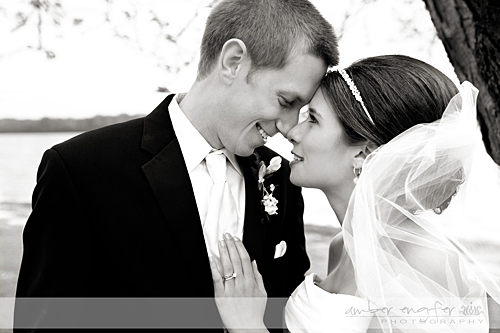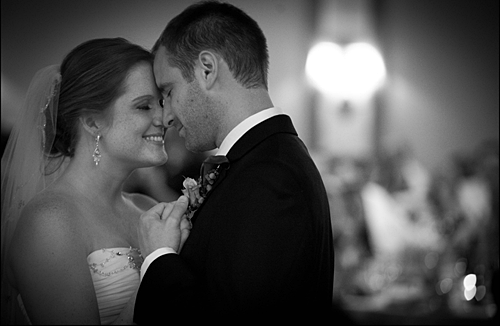Marriage & Pre-marital Counselling with Cornelia Swart
1.) What questions should you ask yourself before getting married? For example, can we afford to get married? Am I getting married because all my friends are marrying their boyfriends?
Indeed, it is important to ask yourself why you want to get married, as well as why you want to get married now. I don’t think asking if you can afford to get married is relevant, because one can get married fairly cheaply. Often people get married for the wrong reasons. The wrong reasons range from pregnancy, rebound, rebellion (I am in control of my own life), escape (from a home environment that is fraught with arguments, tension, alcohol abuse and/or molestation), loneliness, physical attraction (in order to gain the acceptance or acknowledgement of others), a feeling of guilt of pity (often due to a physical disability or illness, and even blind. romantic love). Social pressure is a common reason – this is the next step. Getting married is a means of gaining status and to be regarded as more important in a specific career, for example.
There are many questions that a person should ask themselves before marriage – pre-marital advice addresses many of these questions. The following criteria can serve as a guideline you can work through to determine whether you are meant for each other. Most people don't think logically or analytically about their choice of life partner, but these factors do influence us unconsciously and, in a subtle way, do affect the way we think and behave.
- Personality styles and traits
- Cultural and family backgrounds and differences
- Life purposes – this includes learning and career goals
- Expectations – the role of the man/woman; marital expectations/vacations/free time/spiritual life/pets, etc.; perceptions of a successful mother/father and so on
- Financial planning and budgeting – do you agree on how money should be managed?
- Communication and conflict management – it is alarming how few people have the know-how to deal with this
- Do you know your own as well as your fiancé’s emotional needs, as well as his/her love language?
2.) When should you not get married? Imagine being in a relationship for a while – what are the danger signs that you should be on the look out for. For example, your boyfriend becomes jealous or aggressive relatively quickly; your girlfriend has cheated on you several times before.
There is an African saying that says, before getting married, keep both eyes open, and after getting married keep one eye closed.
Before you get involved or before you commit to another, do not let sensual pleasure, pity, desperation, immaturity, ignorance, pressure from others or low self esteem cause you to ignore the warning signs. Keep your eyes open and don't fool yourself into thinking that you can change someone or that faults that you see are not really that important and that their impact will be less important once you are married. The opposite is true – the problems that arise before marriage will, in all probability, be worse as a result of the emotional intensity and responsibility within the marriage. Some people are well adapted, others aren't. The person who is not emotionally well adapted or who doesn't have a stable personality, will not only find it difficult to live with him- or herself , but will also find it difficult to live with others. The most serious marital problems arise when one or both spouses reveal long-term problematic personality traits. Warning signs and problematic character traits can include one or more of the following:
- Selfishness and lack of acknowledgment of your partner’s needs
- Dishonesty and lack of complete transparency. There are two areas in which absolute honesty is exceptionally difficult – one is sharing our sexual history and the other is sharing our financial history.
- Self doubt and low self esteem
- Unhealthy jealousy and control of your spouse, be it with money, freedom, what you may or may not wear, where you may or may not go, and making decisions for you. This behaviour is typical of a person who is unsure of himself. There is a fine balance between the desire for closeness and the need to retain your individuality.
- Any form of dependency – alcohol, drugs, pornography, gambling, pain killers and so on
- Frequent criticism, disrespectful judgment and blame, as well as selfish demands
- Frequent fits of rage that result in you having to think twice before saying something. I call this the landmine affect – you don't know if your next step is going to trigger a landmine!
- Serious and continuous debt creation, as well as not being able to hold down a job
- Irresponsibility and lack of independence
- Weak communication and conflict management
- Uncomfortable with intimacy (emotional and physical)
- Unfaithfulness during your engagement
3.) What problems can couples work on before getting married – for example the man does not assist with the household chores. What problems are so bad that it would be best not to get married?
Think very carefully before you get married to someone who
- abuses you emotionally and physically
- is dependent on drugs, alcohol or pain killers
- tries to control you and displays unhealthy jealousy
- is dishonest and cheats on you
- has uncontrollable fits of rage
- is irresponsible in terms of the law, finances, work
- shows no remorse when he knows that he has done something wrong
Couples can work on the following:
- Communication and conflict management skills
- How to identify each others emotional needs and to learn how to satisfy them. To identify and appreciate each other's love language
- How to turn criticism and demands into respectful requests
- Learn to make your spouse feel important, significant and safe in all that is done or not done, said or not said
- Discuss expectations and decide jointly what will work for both concerned
- Plan and spend quality time together
4.) What mistakes do couples regularly make before marriage? For example, did they not agree on how many children they wanted or if they wanted children or not.They didn't have proper premarital counseling
- They ignored serious warning signs, as already mentioned
- They had unrealistic marital expectations
- They are not open or honest about their pasts or the future
- They cannot communicate effectively or resolve conflict
- They don't have the same life and marital goals – family planning, career planning, and so on
- They didn't discuss their expectations – emotional, physical, spiritual, social, intellectual and cultural
- They didn't spend enough quality time with each other before the marriage
- They don't realize that they are also getting married to the family of their spouse.
5.) Does it happen often that couples think that things will get better when they get married? For example, your girlfriend will no longer cheat on you when you get married; your boyfriend will not go out with his friends so often?
I don't necessarily think that they think that things will improve – they just ignore the behaviour or turn a blind eye to the habits and disrespectful or selfish behaviour because they are so in love, and are at the stage in their relationship where they ignore the obvious. It is not healthy to accommodate your partner at your expense. For example, "I understand that you're tired and that you want to have a few drinks to relax after work" or "I understand that retail therapy will make you feel better when you are so stressed”. This behaviour is not going to be acceptable when you've been married for two years and he/she still wants to pursue this pattern of behaviour. It's very important that you take win-win decisions and can implement solutions so that neither of you make or carry out a decision without your partner enthusiastically agreeing to it.
6.) Does age play a role? Should you rather not get married if you're young? Or does it depend on how long you have been dating?
I don't think age and how long you've been dating are good criteria for deciding to marry or not marry. However, it is important that you know your partner well before you think about getting married.
7.) What are your top tips for couples thinking of getting married?
a.) Get thorough proper premarital guidance. I cannot emphasize this enough. The amount of money, time and energy that are spent on weddings nowadays rather than on the marriage itself, is unhealthy and unbalanced. The wedding lasts a few hours, whereas, hopefully, the marriage lasts for the rest of your life.
Many marriages are likened to a house built on sand – they are built on a weak foundation of dreams. When we dream, we don't have to differentiate between reality and fantasy, and we can create without boundaries and restrictions. Often our dreams are the building blocks for a successful undertaking. However, dreams that don't go hand in hand with realistic planning seldom materialise.
Marital preparation equips you with knowledge and skills that help you throughout the rest of your life.
b.) When you identify problematic areas in your relationship or recognise problematic character traits in yourself or your fiancé, you can consider the following possibilities:
- slow down the relationship
- take time out to discuss and work through the problem areas
- get professional therapy
- end the engagement
c.) Make sure that you have the same life and marital goals, and that you share the same values.
d.) Don't underestimate the importance of spending quality time with each other. Often this aspect is neglected after the marriage ceremony and once the decision to start a family has been made. It is a priority to spend at least 15 hours a week talking, enjoying relaxation activities, and being sexually intimate as well as affectionately intimate.
e.) Be radically open and honest with each other. Secrets do not belong in a marriage.
f.) Don't do anything without the enthusiastic agreement of your partner. If your spouse doesn't agree with something that you want to do, think creatively about a solution that will satisfy both of you.
g.) Learn to apologise/say sorry if you have not yet learnt to do it. Prioritise your marriage instead of your pride. It is just as important to forgive.
h.) Learn to listen and validate your partners feelings. You don't have to agree, but you must understand and comprehend.
i.) Respect and appreciate each other daily.
j.) Do you really know your partner? To discuss problems and work through them requires a relationship with emotional security, reasonable emotional maturity, emotional health/wellbeing and a commitment from both sides. A person who is emotionally well adjusted has the following character traits, more or less:
- Calm rather than tense or very anxious
- Happy rather than depressed
- Optimistic rather than negative and pessimistic
- Realistic rather than unrealistic
- Respectful rather than disrespectful
- Able to communicate rather than reserved
- Shows empathy and has the ability to care rather than unsympathetic
- Sensitive towards the feelings and needs of others rather than insensitive
- Has self knowledge and an openness rather than a defensive attitude
- Objective rather than subjective
- Flexible rather than rigid and controlling
- Patient rather than impatient
- Charming, friendly and likeable rather than hostile
- Humble rather than proud
- Considerate rather than impulsive
- Has a good self image rather than a poor self image
- Is honest and direct rather than manipulative
- Is direct with others rather than reserved
- Has self assurance rather than feelings of insecurity
- Has self acknowledgment without being domineering or controlling
These character traits are displayed in almost everything a person thinks and does, especially in the marriage. When a person leans towards some of the negative character traits, it would be like cuddling up to a porcupine!
Article Credit: Cornelia Swart
Contact Information
Contact: Cornelia Swart
Cell: +27 (0)83 625 5686
Website: www.premaritalcounselling.co.za












